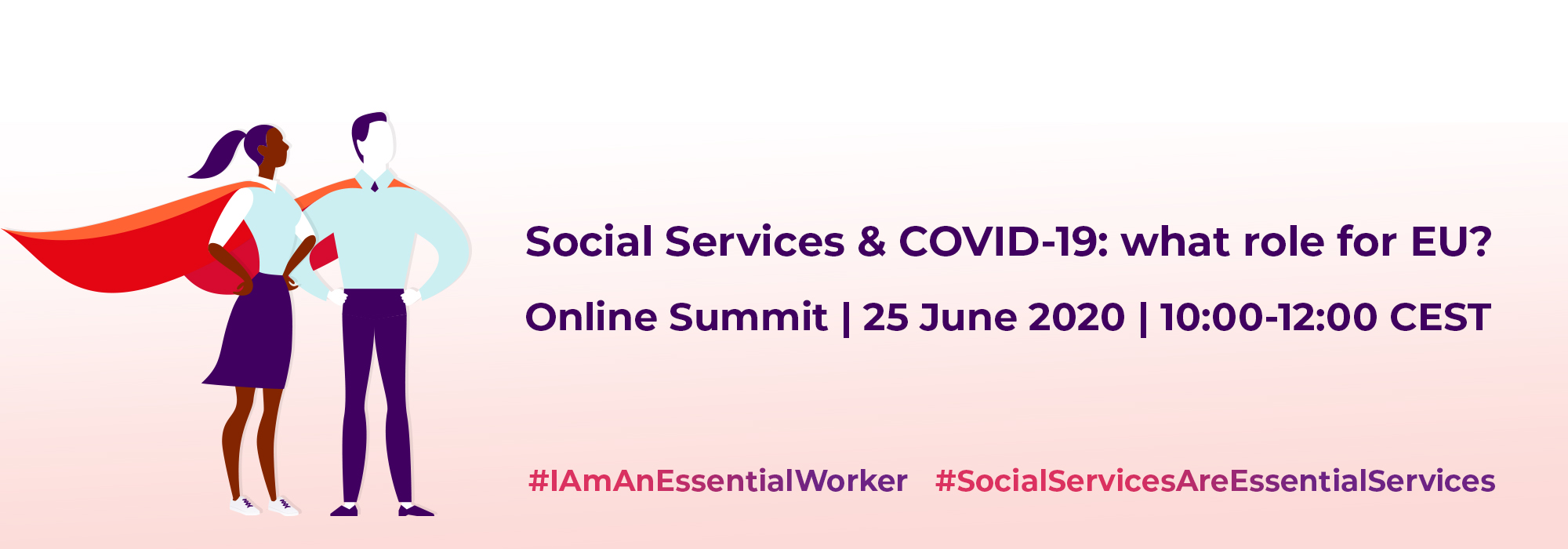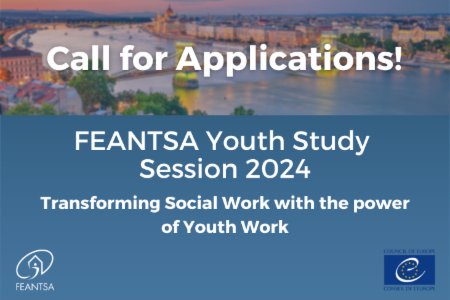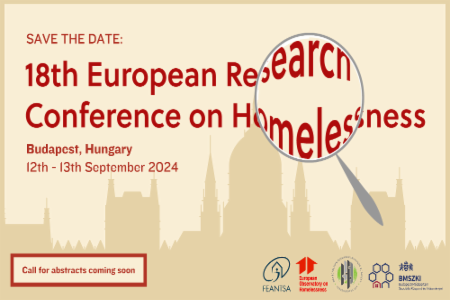Joint call for stronger commitment by the EU to ensure resilience of Social Services
On 25 June 2020, the European social services sector came together for a social summit to call the European Union to strengthen recognition, urgency and resilience in social services during the COVID-19 pandemic and the recovery. The Online Summit was also the opportunity for the sector to engage with high level European policy and thought leaders: the Vice President of the European Parliament Dimitrios Papadimoulis, the Vice President of the European Commission Dubravka Šuica, Member of European Parliament Drago? Pîslaru and University Professor Frank Vandenbroucke. The Online Summit “Social Services & COVID19: what role for EU?,” viewed by over 2,000 people across different platforms.
Social Services is a sector employing over 11 million professionals, primarily in not-for-profit or public services, who provide care and support to millions of people, including people experiencing homelessness, people with disabilities older persons, children, people at risk of poverty and exclusion and many more.
In his welcoming remarks, the Vice President of the European Parliament, Dimitrios Papadimoulis highlighted the Parliament's concern that COVID19 has exposed long-standing problems in care provision in the European Union and highlighted the possibility that the Recovery Plan for Europe, currently under negotiation, may make tens of billions of euros available for funding such initiatives.
The Vice President of the European Commission, Dubravka Suica, stated that “social services are under particular strain and the European Commission is committed to help”; listing their ongoing exchanges on how to best support the sector and the actions the European Union is taking in response to COVID19, including the Coronavirus Response Investment Initiative.
Professor Frank Vandenbroucke from the University of Amsterdam referred to how well organized social policy is an investment into the resilience of our societies and expressed how COVID is a stress test for social services, but also for the real significance of the European Pillar of Social Rights, agreed in 2017.
Speaking on behalf of a support provider for children with disabilities in Bulgaria, Maya Doneva, CEO of Karin Dom, argued that “as someone who is in charge of a local service provider, I would like the European institutions to show more guarantees and commitment that social services are essential to the EU”.
Dragos Pislaru, Member of the European Parliament expressed his belief that social services are the real heroes in the fight against COVID19 but also called more to be done to improve their resilience. MEP Pislaru referred to the €560 billion proposed by the European Commission in the Resilience and Recovery Facility as an extremely useful instrument to generate the social reforms needed, included to designate social services as essential.
Heather Roy, Secretary General of Eurodiaconia, expressed concerns that we have on the one hand a commitment to support social services by the European Union, yet also reduced or no additional funding in the main policy funds that the EU sees as relevant for social services; referring to the proposed cuts to European Social Fund + in the next framework.
Presenting the recently agreed joint position by the entire social services sector, EASPD Secretary General, Luk Zelderloo, said “The message from the sector is crystal clear: we need the European Union to strengthen the recognition, take urgent action and invest in resilience in social services. Alongside national and regional authorities, the EU must demonstrate real commitment and ensure its policies actually reach social service providers across the continent.”






